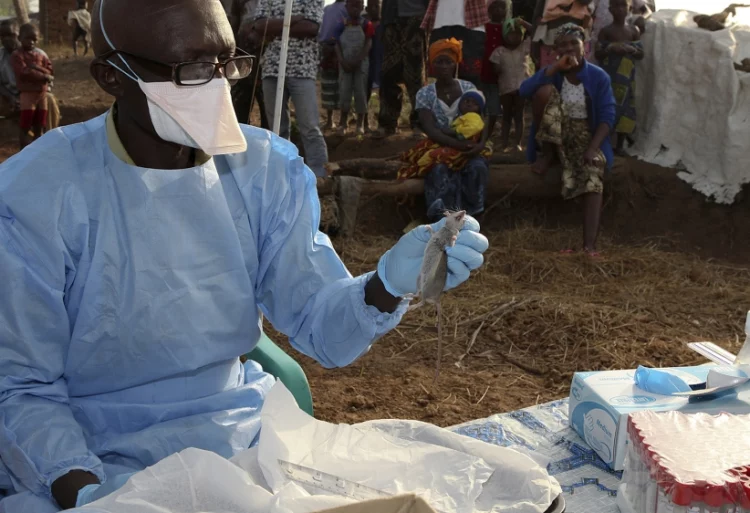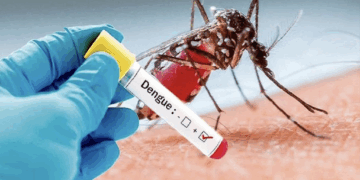Lassa fever, an acute viral hemorrhagic illness caused by the Lassa virus, has remained a significant public health concern in Nigeria for decades. First identified in 1969 in the town of Lassa, Borno State, the disease has since become endemic in many parts of the country, particularly in the dry season between November and April.
Despite efforts to curb its spread, Lassa fever continues to claim lives and stretch the country‘s s fragile health infrastructure.
As the relentless fight against the disease persists, the Nigeria Centre for Disease Control and Prevention (NCDC) has confirmed 143 cases and 22 deaths within the first two weeks of 2025.
The outbreak has spread across seven states and 32 local government areas, underscoring the urgency of implementing robust measures to contain the deadly viral hemorrhagic disease.
The affected states; Ondo, Edo, Bauchi, Taraba, Gombe, Kogi, and Ebonyi have reported alarming case numbers, with Ondo alone accounting for 38 per cent of the infections.
The NCDC has described the situation as critical, particularly as the dry season, which typically sees a spike in Lassa Fever cases, continues to fuel the spread.
Lassa fever is primarily transmitted through food or household items contaminated by the urine and feces of infected Mastomys rats. Human-to-human transmission is also common, especially in healthcare settings lacking adequate infection control measures.
The disease has predominantly affected young adults, with men being more at risk. Healthcare workers are also vulnerable, as evidenced by one confirmed case among frontline responders during the reporting period.
In response, the NCDC said it has activated its multi-sectoral Incident Management System to coordinate efforts among government agencies and development partners.
This strategy aims to strengthen surveillance, enhance case management, and promote public awareness about preventive measures, such as proper food storage, rodent control, and environmental hygiene.
The Director-General of NCDC, Dr. Jide Idris, emphasised preventive measures, urging Nigerians to maintain personal and environmental hygiene. “Block all holes to prevent rodents, store food in sealed containers, and avoid drying food on the ground where contamination is likely.“
He stressed the need for personal and environmental hygiene to prevent the infestation of rats in homes and communities, especially during dry season when the country typically record more cases of Lassa fever.
„Cover your waste bins and dispose your waste properly. Safely store food items such as rice, garri, beans, corn/maize, etc, in tightly sealed or well-covered containers. Avoid drying food stuff outside on the ground or roadside, where it is at risk of contamination.
Eliminate rats in homes and communities by using rat traps and other appropriate and safe means.“
Communities should set up dump sites far from their homes to reduce the chances of the entry of rodents into their homes,“ he urged.
Despite a slight decrease in the case fatality rate (15.4 per cent compared to 16.4 per cent in 2024), the center warns that the outbreak remains critical, particularly during the dry season when cases typically surge.
Healthcare workers have been urged to maintain a high index of suspicion for Lassa fever in patients with febrile illnesses and to follow strict infection prevention protocols.
The NCDC also cautioned Nigerians to seek proper medical diagnosis for fever, as not all fevers are malaria.
In 2024, Nigeria recorded 1,187 confirmed cases and 191 deaths from Lassa fever. With the 2025 outbreak escalating quickly, stakeholders have called for advanced research, increased government commitment, and growing international collaboration to pave the way for more effective prevention and control strategies.





